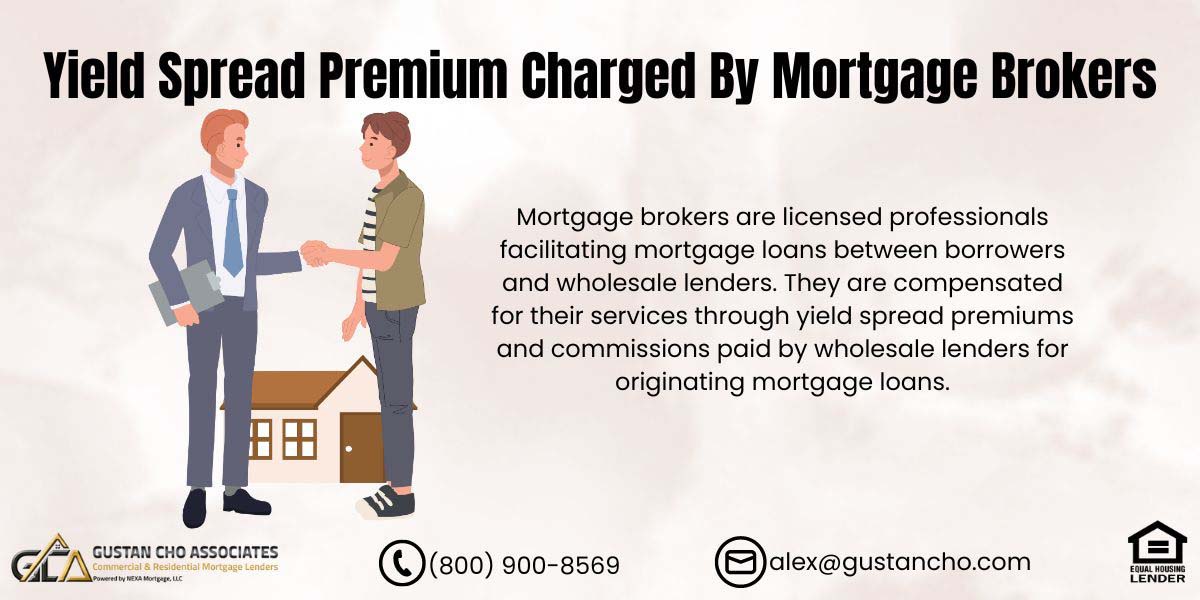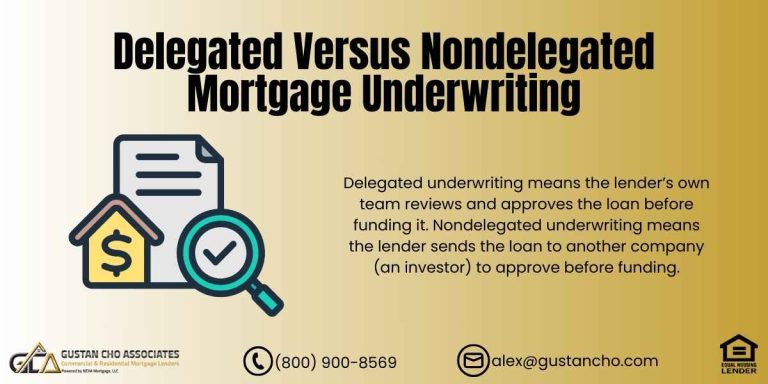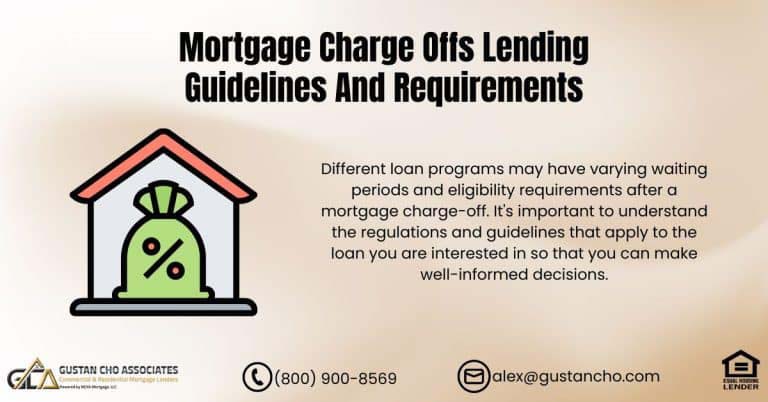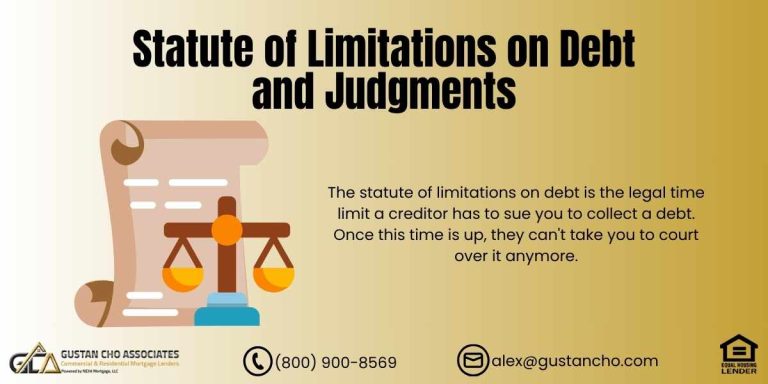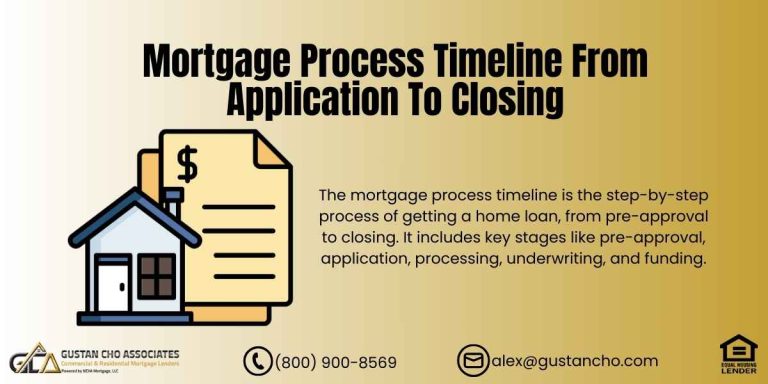Mortgage brokers are paid a commission, referred to as Yield Spread Premium Explained, from wholesale mortgage lenders or end lenders, for their services of originating a mortgage loan. Mortgage brokers are licensed mortgage loan originators who have relationships with multiple wholesale mortgage lenders.
Mortgage Brokers are licensed professionals who have access to multiple wholesale lending partners. Mortgage brokers enter into lending partnerships with wholesale lenders. They can help mortgage loan applicants who have special needs. For example, if a bank cannot help borrowers get a mortgage due to their lender overlays, a mortgage broker can possibly help. This is because mortgage brokers have outlets to specialty wholesale lenders.
The Service Comparisons Between Mortgage Brokers versus Mortgage Bankers
Mortgage bankers normally only offer loans they offer such as government and conventional loans. Mortgage brokers can offer government and conventional loans like mortgage bankers but can also offer non-QM loans and other alternative financing loan programs. Mortgage brokers and mortgage bankers get paid a commission for their services.
The commission they make is called yield spread premiums which are another word for commissions. Loan officers at both mortgage lenders and mortgage brokers get paid commissions for originating loans. Speak With Our Loan Officer for Mortgage Loans
Confused About Yield Spread Premiums? We’ll Break It Down
Understand how YSP affects your rate and what mortgage brokers are allowed to charge.What is the Yield Spread in Real estate?
There is nothing free ever in the mortgage world. Mortgage bankers are exempt from the maximum 2.75% maximum yield spread premium mortgage brokers can charge for their services. Mortgage bankers are also exempt from disclosing their fees on the Closing Disclosure.
In general, the higher the compensation plan of mortgage bankers, the higher the rate to the borrowers. There is no question mortgage brokers can offer far lower rates than mortgage bankers unless mortgage bankers have substantially lower comp plans matching mortgage brokers.
What is the Wholesale Mortgage Spread?
The wholesale mortgage spread is the difference between the interest rate lenders pay to borrow money in the wholesale market and the rate they charge borrowers. This spread is important in mortgage lending because it shows how much profit the lender makes and helps cover costs like starting loans and servicing them.
The wholesale mortgage spread can change based on market conditions, borrowers’ credit profiles, and current interest rates. It shows how lenders balance the need to make a profit while staying competitive in the mortgage market.
Do Mortgage Brokers Have Lower Rates Than Mortgage Bankers?
A frequently asked question is do mortgage brokers have lower rates than mortgage bankers? The answer is YES. Mortgage brokers are limited on the maximum commissions they can charge per loan.
The reason why mortgage brokers are limited on the amount of commission they can charge is that mortgage brokers do not close under their company name and do not fund the loan with their own money. Mortgage bankers can exceed the 2.75% back-end commission per loan transaction and can charge as much as they want. The higher the compensation for the mortgage lender, the higher the rate for the borrower.
Why Are Mortgage Bankers Exempt From Max Cap On Compensations Like Mortgage Brokers?
Banks, credit unions, correspondent lenders, and mortgage bankers are exempt from the maximum compensation cap they can charge a public customer as well as from disclosing their compensation on the Closing Disclosure (CD).
The reason mortgage bankers can exceed the 2.75% compensation on the back end is because they close the loan under their company name and close and fund the loans they close using their warehouse line of credit. If you are a mortgage banker and/or a correspondent lender, you do not have to disclose your compensation and/or yield spread premium.
Mortgage Brokers Versus Mortgage Bankers
Mortgage brokers and mortgage bankers need similar licenses to operate. Both of them help people get loans, and they must be licensed in the states where they conduct business. Mortgage bankers use their own credit line to fund the loans they close.
Once they fund these loans, mortgage bankers sell them to a wholesale lender. They use the money from this sale to pay down their credit line, allowing them to get and fund more loans. On the other hand, mortgage brokers partner with wholesale lenders but do not close loans in their own name.
Business Model of Mortgage Brokers
Mortgage brokers do not use their own money to fund mortgage loans. Usually, mortgage brokers’ rates are lower than mortgage bankers. This is because mortgage brokers, by law, cannot charge more than a 2.75% yield spread premium. They must disclose this yield spread premium on the closing disclosure since they do not close loans in their names.
Cap On Yield Spread Premium Offers Low Rates To Borrowers
Mortgage brokers close loans under the name of the wholesale lender. The wholesale lender funds the loan. Mortgage bankers do not have to disclose how much they make on the back end. They have no maximum cap on how much they can charge. The reason why mortgage bankers are exempt from disclosing how much they charge and no maximum compensation cap is because they close loans under their name and fund loans they close.
Who Do I Choose: Mortgage Banker Or Mortgage Broker
Most borrowers do not know whether the loan officer they are dealing with works for a mortgage banker or mortgage broker. It really does not matter whether borrowers deal with a mortgage broker or mortgage banker. Both mortgage bankers and mortgage brokers are originators and are qualified to get the job done.
Mortgage brokers are professionals who have lending relationships with multiple wholesale lenders. Borrowers who cannot qualify for traditional conforming loans at a mortgage banker may benefit from the services of a mortgage broker. A mortgage banker uses their own funds to fund mortgage loans. Mortgage bankers normally cater to their own products.
Want Transparency in Mortgage Pricing? Start Here
We disclose all fees—including YSP—so you can make an informed decision without surprises.Understanding The Difference Between Agency Guidelines Versus Lender Overlays
Mortgage bankers have their own set of mortgage lending guidelines called lender overlays. For example, to qualify for an FHA loan with a 3.5% down payment, HUD only requires a 580 credit score. However, a particular mortgage banker may have their own rules that are higher than HUD’s 580 credit score requirement.
Most mortgage bankers do not like to take too much risk so they have lender overlays. They may implement a minimum credit score of 640. Mortgage bankers with overlays may refuse to look at any borrowers with credit scores under 640. This is when a mortgage broker can help borrowers. Mortgage brokers will have access to dozens of whole lenders with no overlays. Home Buyers do not have to contact one lender after another lender.
Services Of Mortgage Brokers Versus Mortgage Lenders
Most mortgage bankers will only offer government and conventional loans. Some mortgage bankers may have correspondent lending relationships with larger mortgage bankers on Jumbo loans and other non-conforming loan programs. However, mortgage brokers can have dozens of lending relationships with wholesale lenders.
Mortgage Brokers may have outlets to specialty lenders who specialize in the following types of loans:
- FHA loans down to 500 FICO
- VA loans with no credit score requirements and no debt to income ratio caps as long as the borrower has an approve/eligible per automated underwriting system
- borrowers with large outstanding collections and charged-off accounts
- high debt to income ratios
- Non-QM loans
- Non-QM mortgages one day out of bankruptcy
- No-doc home loans for primary homes
- ITIN loans
- Bank statement mortgages
- Asset-depletion mortgages
- P and L no doc stated income self-employed mortgage loans with no income tax required and only one year of self-employment
In lieu of their services, mortgage brokers get paid a commission often referred to as a yield spread premium:
- The commission the lender pays the mortgage broker is called yield spread premiums, also known as YSP
- The law requires yield spread premiums of mortgage brokers need to be disclosed
- Mortgage bankers are exempt from disclosing their back end compensation
The yield spread premiums are basically the mortgage broker’s compensation by the wholesale mortgage lender.
What is the Yield of a Mortgage?
Yield Spread Premiums to a mortgage broker are paid for by the lender. A mortgage loan application is not responsible for paying the mortgage broker their commission. However, due to new federal disclosure laws, all yield spread premiums need to be disclosed to all mortgage loan applicants on the fees worksheet and Loan Estimate.
The yield spread premium will be listed and a credit will be listed so it zeroes it out. Borrowers are charged the yield spread premiums. But then the lender will credit the mortgage applicant the yield spread premiums so there are no charges for the mortgage loan applicant. Mortgage Lenders will charge a higher mortgage rate in order to be able to pay the mortgage broker.
Maximum Mortgage Broker Commission
The maximum amount a mortgage broker can charge a borrower is no more than 2.75%. This includes fees and costs along with the yield spread premiums. Most mortgage brokers cap their yield spread premiums at 2.5%. This way they have 0.50% to work with in the event if there are other costs and fees such as underwriting fees, processing fees, or credit report fees.
For example, here is a case scenario:
- Borrowers get a $100,000 mortgage
- On the fees worksheet and Loan Estimate, it states the yield spread premiums at 2.5% or $2,500
- That cost is the commission that the mortgage broker makes
Normally, the yield spread premiums are split between the owner of the mortgage brokerage and the mortgage loan originator. Whether you are a mortgage broker or mortgage banker, the higher the compensation on the back end, the higher the mortgage rates. The lower the compensation on the back end, the lower the mortgage rates to the consumer.
In general, mortgage bankers have much higher rates than mortgage brokers. This is because the compensation of most mortgage bankers is significantly higher than the 2.75% mortgage brokers can make. The mortgage broker can lower the yield spread premium to get borrowers lower mortgage rates.
Mortgage Brokers Yield Spread Premium
Every mortgage broker needs to enter into an agreement with a lender they want to do business with. When they enter into the business agreement, the mortgage broker and wholesale lender sign a yield spread premium agreement where they agree on a commission structure. Again, the maximum a mortgage broker can charge is 2.75% by law.
This includes not just the yield spread premiums but also any costs and fees with the origination of the mortgage loan. A mortgage broker can enter into a commission agreement anywhere between 0.50% to 2.99%.
Yield Spread Premium Cap On Brokers: The Higher The Lender’s Comp Plan, The Higher The Mortgage Rates To The Borrowers
The higher the commission structure the mortgage broker chooses, the higher the rates will be to the borrower. The yield spread premiums are paid to the mortgage broker from the wholesale lender above par pricing. The higher the yield spread premiums, the higher the rate.
In the event, that the mortgage broker wants to give the client the best rate at par pricing, then it needs to be borrower paid. It needs to be borrower-paid because the lender will not give a commission to the mortgage broker at par pricing.
Yield Spread Premium Plus Lenders Credit Towards Borrower’s Closing Costs
Mortgage brokers get paid via yield spread premiums by mortgage lenders. The higher the yield spread premiums, the higher the mortgage rates. A mortgage broker can increase the yield spread premiums above his comp plan and give the excess to the mortgage borrower. This is done so borrowers have extra cash to cover the closing costs associated with the mortgage loan.
For example, say par pricing for a $100,000 FHA loan is 4.00%:
- Let’s also say that the mortgage broker has a comp plan with the wholesale lender where the wholesale lender will compensate the mortgage broker 2.5% for all lender paid mortgage loans originated by the mortgage broker
- In this example, the mortgage broker might have to charge the mortgage borrower 4.25% in order for him to get the 2.5% yield spread premium
- The mortgage broker can charge the borrower 4.5% and get a total yield spread premiums of 4.0%
- But the maximum the mortgage broker can make is 2.5%
- The excess 1.5% in credit will go towards the borrower to cover the closing costs
This excess is called a lenders credit towards a buyer’s closing costs.
See What Your Broker Is Earning—and Why It Matters
Yield Spread Premiums can raise your rate. We help you compare offers with full transparency.Yield Spread Premium Cap By Mortgage Brokers Gets Best Rates For Borrowers
There are cases where a mortgage loan borrower wants the lowest rate possible and is willing to pay points. In situations like these, the mortgage broker can give borrowers par pricing. Let’s use the above case scenario. Par pricing in the above scenario was 4.0%. The lender will not give the mortgage broker any lender comp at this rate. This case scenario is called borrower-paid comp where the borrower pays the mortgage broker 2.5%.
Mortgage Banker And Mortgage Broker
A mortgage banker can also broker mortgage loans. For example, mortgage bankers use their own funds to fund mortgage loans. However, investors have overlays and may not accept borrowers under 620 credit scores. So borrowers who have credit scores under 620 may need to be brokered out to mortgage lenders with no overlays.
Mortgage bankers do not disclose yield spread premiums. This is because they use their own funds. Mortgage brokers do need to disclose yield spread premiums because they are not lenders but the middleman.
On banking transactions, there is no mortgage yield spread premium to disclose. However, on mortgage transactions that loan officers broker, they will need to disclose the yield spread premiums on the Closing Disclosure.
Borrowers should always shop for the best rates and terms. Mortgage rates can widely vary. It does not mean whether you are going with a loan officer who works as a mortgage broker or mortgage banker. Both mortgage brokers and mortgage bankers are licensed professionals. However, in general, mortgage brokers have lower rates than mortgage bankers due to their maximum cap on how much they can charge on a mortgage transaction.
What is the Penalty for Mortgage Brokers?
Mortgage broker penalties can vary depending on the region and the rules for mortgage lending. Brokers may face penalties for breaking lending laws, engaging in unethical behavior, engaging in fraud, or not following regulatory requirements.
Some common penalties for mortgage brokers may include:
Fines: Regulatory authorities may impose monetary fines on mortgage brokers who violate laws or regulations. The amount of the fine may differ based on the degree of severity of the infraction.
License suspension or revocation: Mortgage brokers are typically required to hold a license to operate legally. If a broker engages in serious misconduct or repeatedly violates regulations, their license may be suspended or revoked, effectively barring them from conducting mortgage brokerage activities.
Legal action: In severe misconduct or fraud cases, mortgage brokers may face legal action, including civil lawsuits or criminal charges. This can result in additional penalties such as restitution payments, court costs, or even imprisonment.
Loss of reputation: Penalties for mortgage brokers can also extend beyond financial and legal consequences. Public disclosure of misconduct can damage the broker’s reputation and credibility, potentially leading to loss of business and professional opportunities.
Overall, the penalties for mortgage brokers aim to enforce compliance with regulations, protect consumers from financial harm, and maintain the integrity of the mortgage lending industry.
If you have any questions about Yield Spread Premium Charged By Mortgage Brokers or you need to qualify for loans with a lender with no overlays on government or conforming loans, please contact us at Gustan Cho Associates at 800-900-8569. Text us for a faster response. Or email us at alex@gustancho.com . The team at Gustan Cho Associates is available 7 days a week, on evenings, weekends, and holidays.
FAQ: Yield Spread Premium Charged By Mortgage Brokers
Q: What is a Mortgage Broker, and What are Yield Spread Premiums?
A: Mortgage brokers are licensed professionals facilitating mortgage loans between borrowers and wholesale lenders. They are compensated for their services through yield spread premiums and commissions paid by wholesale lenders for originating mortgage loans.
Q: How do Mortgage Brokers Differ from Mortgage Bankers?
A: Mortgage brokers have access to multiple wholesale lending partners and can offer a wider range of loan options, including non-QM and alternative financing programs. On the other hand, mortgage bankers typically offer a narrower selection of loan products and fund loans using their capital.
Q: What Factors Influence Mortgage Rates Offered by Brokers and Bankers?
A: Mortgage rates can vary based on the lender’s compensation structure. Mortgage brokers are limited by law to a maximum commission, which can lead to lower rates for borrowers. In contrast, mortgage bankers have more flexibility in their compensation and may charge higher rates.
Q: Why are Mortgage Bankers Exempt from Certain Regulations on Compensation?
A: Mortgage bankers fund loans directly using their capital and are not required to disclose their compensation or adhere to maximum commission caps like mortgage brokers. This exemption is due to mortgage bankers’ different business models and risk profiles.
Q: How do Borrowers Benefit from Working with Mortgage Brokers?
A: Borrowers can benefit from mortgage brokers who can access a broader range of loan options and wholesale lenders, including specialty lenders that cater to unique financing needs, such as those with low credit scores or non-traditional income sources.
Q: What Penalties do Mortgage Brokers Face for Misconduct or Violations?
A: Penalties for mortgage brokers may include fines, license suspension or revocation, legal action, and damage to their reputation. These penalties aim to enforce compliance with regulations and protect consumers from financial harm.
This blog about “Yield Spread Premium Charged By Mortgage Brokers” was updated on July 2nd, 2025.


